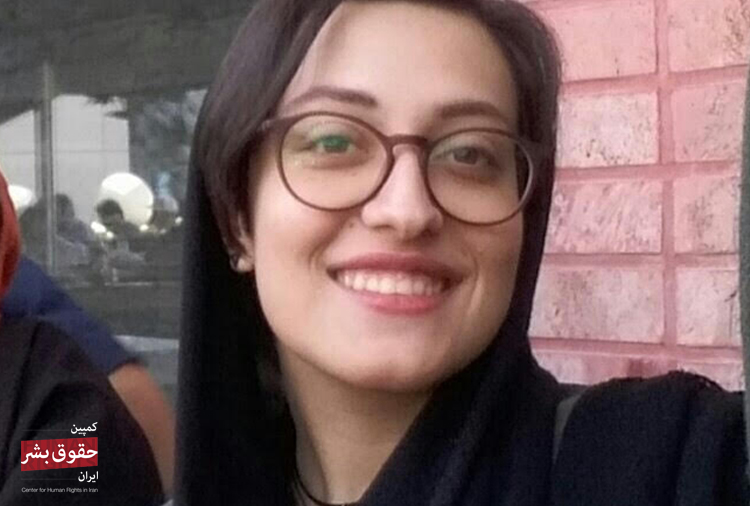Source: persian.iranhumanrights.org
Translation by Iran Press Watch

Soha Izadi was admitted to the University of Zanjan in March 2018, but has been expelled for her belief in the Baha’i Faith. She was an Informatics Engineering major.
Soha Izadi was born in 1997 and admitted as an Informatics Engineering major to the University of Zanjan in 2015. She had already passed 150 units and had one more year before graduation before her expulsion in March 2018.
“On 14 March 2018, during the winter semester final exams, university administrators contacted Ms. Izadi informing her that they had received a letter from the ethics division of the National Organization of Evaluation indicating that she could no longer pursue her education there. Her name was subsequently removed from the list of students and she could no longer log in to university websites,” said an informed source.
This source added that: “After many follow-ups, Soha was told that the only way to go back to her classes would be for her to recant her Baha’i belief, and that she would have to present this in a written statement to the university authorities.”
“The parents of Soha Izadi as youth were also prevented from pursuing higher education for many years for the same reason: that they were Baha’is. Their files were falsely labeled “incomplete” to insure the denial of their admission,” the source continued.
“Incomplete files” is the term Baha’i applicants see next to their names when the results of the annual National University Entrance Exam are announced; thus making it impossible for them to matriculate at universities and colleges.
Despite the emphasis of the Iranian Constitution on the right to education for all citizens, Baha’i students are deprived of the right to pursue higher education according to one of the directives of the Supreme Council of the Cultural Revolution in charge of the Islamization of universities, blessed by the Supreme Leader, Ali Khamenei. The third paragraph of the ordinance of this Supreme Council, which was approved by the Supreme Leader of Iran, Ali Khamenei, on March 1990, states: “At the time of admission, or, while in school, if Baha’is are recognized, they are to be denied or expelled.”
Denying admission to Baha’i students, or their expulsion in the middle of the school year, has been an ongoing issue ever since 1981, following the Cultural Revolution. The Iranian Security Ministry had confronted and opposed even the online and self-taught universities operated by Baha’is, calling them illegal and jailing their professors with long-term sentences.
In November 2017 the Iranian Ministry of Justice sentenced 3 Baha’i students to 5-year terms after their expulsion. These students were sentenced for objecting to being expelled and appealing to the President of Iran to resolve the issue. Instead, they were accused of “spreading false news”, and charged with “conspiracy to act against the security of the nation”.
Yet on 24 April 2018, in a Foreign Relations Council meeting in New York, Mr. Mohammad Javad Zarif, the Iranian Foreign Minister, declared: ”Being a Baha’i is not a crime in Iran. No one is imprisoned in Iran for being a Baha’i or an atheist,” Mr. Zarif added.
Mohammad Javad Zarif claims that no Baha’i or atheist is persecuted, yet Baha’is, newly converted Christians, and those who express personal beliefs that differ from Islamic beliefs in social media are arrested and incarcerated with severe sentences. On top of that, many Baha’is have lost their jobs, been denied education, lost all their belongings and earnings and even been killed for their faith. Mr. Zarif’s claim is contradicted by events of the last 40 years.
Leave a Reply